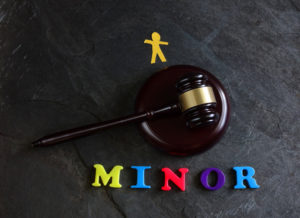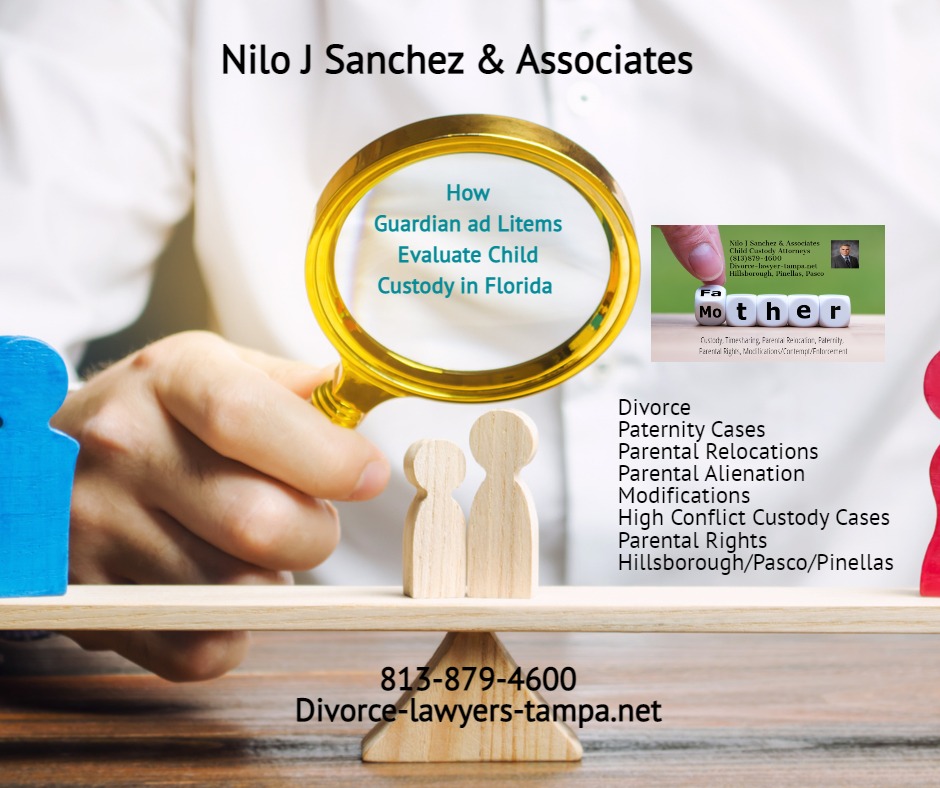How Guardian ad Litems Evaluate Child Custody Matters
Guardian ad Litems (GALs) are frequently used in Florida child custody cases to help the courts evaluate and to make decisions in custody litigations.
Once requested by either party, and appointed to your case, a Guardian Ad Litem will begin their investigation into areas that help them to advocate for the best interests of the child(ren). They are not attorneys for either party. A GAL typically will focus on the following areas of the child’s life with each parent;
- Living Arrangements
- Relationship history with each parent
- Parenting Time with each parent
- Education / School Progress
- Relationship with siblings (Half brothers/sisters)
- Relationship with extended family
- Medical History of Child (A GAL does not make mental health evaluations, but rather has the power to access records and to speak with healthcare providers)
- Criminal History or Pending Criminal Charges of Either Parent
- History of Domestic Violence
Is a GAL Advocating for Parents or Children?

Once the GAL has completed their investigation and evaluation, they will make their recommendations to the courts. A judge will heavily consider the GALs report and recommendations but they are not bound to it. The courts will weigh all aspects of the case prior to making a ruling on child custody.
Learn More : Florida Guardian ad Litems & Child Custody
What Powers do GALs have when Evaluating Child Custody
In order to determine what will be in the best interest of the child. A guardian ad litem shall have the powers, privileges, and responsibilities to the extent necessary to advance the best interest of the child, including, but not limited to, the following:
- May investigate the allegations of the pleadings affecting the child, and, after proper notice to interested parties to the litigation and subject to conditions set by the court, may interview the child, witnesses, or any other person having information concerning the welfare of the child.
- Guardian Ad Litems may visit the child, the parents and step parents, and may visit with or contact others that the GAL feels may provide information necessary that will help the courts make a decision.
- The Guardian Ad Litem has the ability to subpoena witnesses to testify, ask questions and attend depositions, and access school and medical records of the child. The GAL may also ask the parties for a list of witnesses to speak with to obtain more information on the interaction of the parties with the child and the character of the parties.
-
The guardian ad litem, through counsel, may petition the court for an order directed to a specified person, agency, or organization, including, but not limited to, hospitals, medical doctors, dentists, psychologists, and psychiatrists
-
Inspect and copy any records and documents which relate to the minor child or to the child’s parents or other custodial persons or household members with whom the child resides. Such order shall be obtained only after notice to all parties and hearing thereon.
-
The guardian ad litem, through counsel, may request the court to order expert examinations of the child, the child’s parents, or other interested parties in the action, by medical doctors, dentists, and other providers of health care including psychiatrists, psychologists, or other mental health professionals.
-
The guardian ad litem may assist the court in obtaining impartial expert examinations.
Confidentiality of GAL/Child Communications
The Guardian Ad Litem is an advocate for the best interests of the child, but is not the child’s attorney. The GAL is not obligated to do what the child desires. Communication between the child and the GAL are not kept confidential and information may be disclosed in the GAL’s report or through discovery.
Tampa Bay Child Custody Lawyers
GALs can be a very useful resource when determining custody and timesharing in cases of parental relocations and other impactful custody matters. As with any child custody matter, hiring a top rated child custody lawyer can be highly beneficial and particularly true when a GAL has been introduced. For more information or to schedule a consultation with Tampa Bay Child Custody Lawyers Nilo J Sanchez & Associates call (813) 879-4600 or leave us a secure message below.


 Hillsborough County Family Law and CourtS
Hillsborough County Family Law and CourtS
3 comments